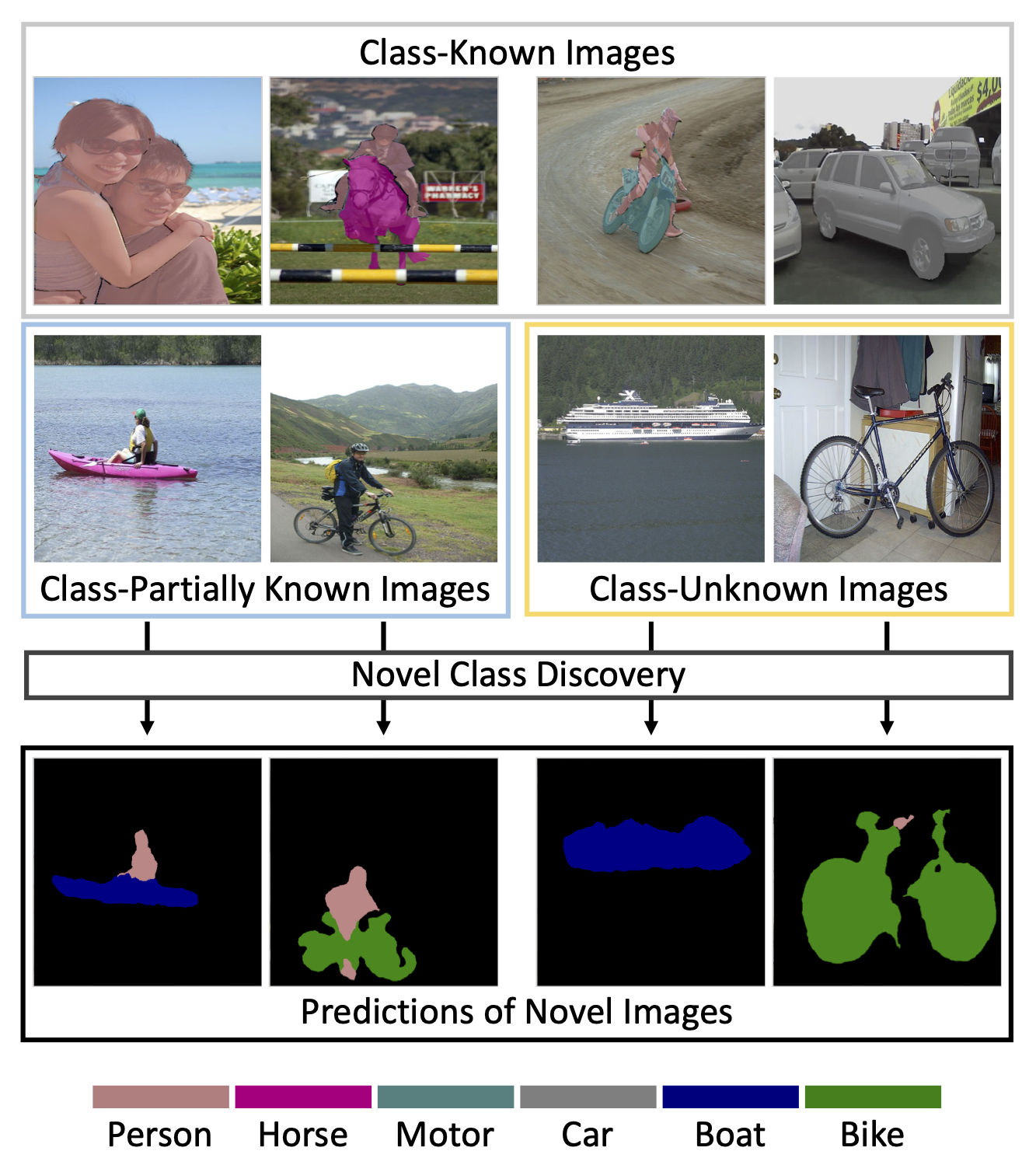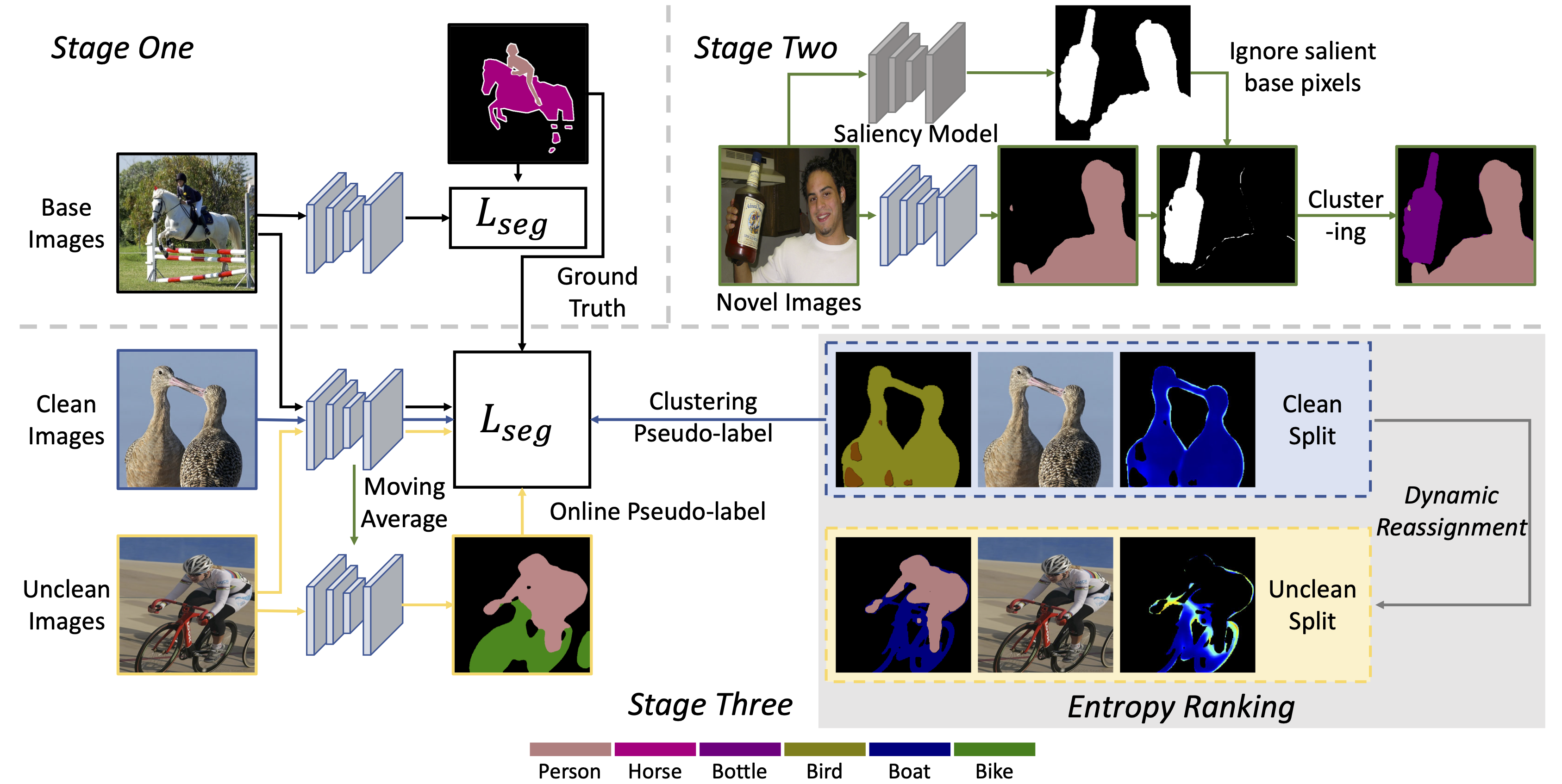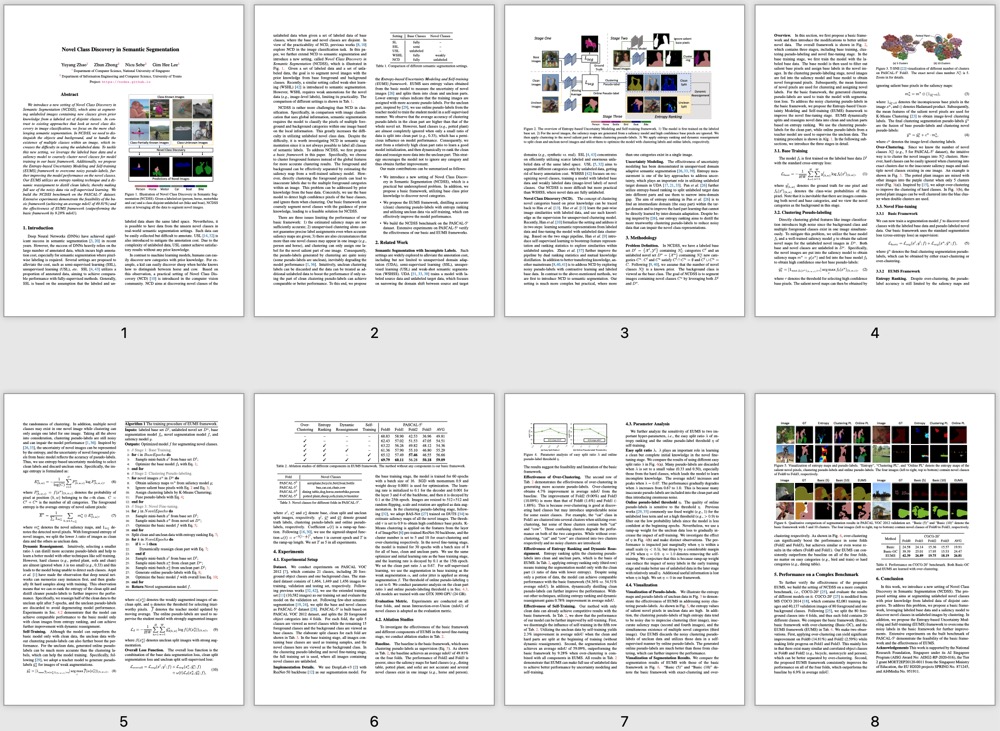Novel Class Discovery in Semantic Segmentation
2. Department of Information Engineering and Computer Science, University of Trento

Illustration of Novel Class Discovery in Semantic Segmentation (NCDSS).
Abstract
We introduce a new setting of Novel Class Discovery in Semantic Segmentation (NCDSS), which aims at segmenting unlabeled images containing new classes given prior knowledge from a labeled set of disjoint classes. In contrast to existing approaches that look at novel class discovery in image classification, we focus on the more challenging semantic segmentation. In NCDSS, we need to distinguish the objects and background, and to handle the existence of multiple classes within an image, which increases the difficulty in using the unlabeled data. To tackle this new setting, we leverage the labeled base data and a saliency model to coarsely cluster novel classes for model training in our basic framework. Additionally, we propose the Entropy-based Uncertainty Modeling and Self-training (EUMS) framework to overcome noisy pseudo-labels, further improving the model performance on the novel classes. Our EUMS utilizes an entropy ranking technique and a dynamic reassignment to distill clean labels, thereby making full use of the noisy data via self-supervised learning. We build the NCDSS benchmark on the PASCAL-5^i dataset. Extensive experiments demonstrate the feasibility of the basic framework (achieving an average mIoU of 49.81%) and the effectiveness of EUMS framework (outperforming the basic framework by 9.28% mIoU).
Method Overview

Overview of Entropy-based Uncertainty Modeling and Self-training framework.
Results

Ablation studies of different components in EUMS framework.

Performance on COCO-20^i benchmark.

Visualization of entropy maps and pseudo-labels.

Qualitative comparison of segmentation results in PASCAL VOC 2012 validation set.
Citation
@inproceedings{zhao2022ncdss,
title={Novel Class Discovery in Semantic Segmentation},
author={Zhao, Yuyang and Zhong, Zhun and Sebe, Nicu and Lee, Gim Hee},
booktitle={Proceedings of IEEE Conference on Computer Vision and Pattern Recognition (CVPR)},
year={2022}}
